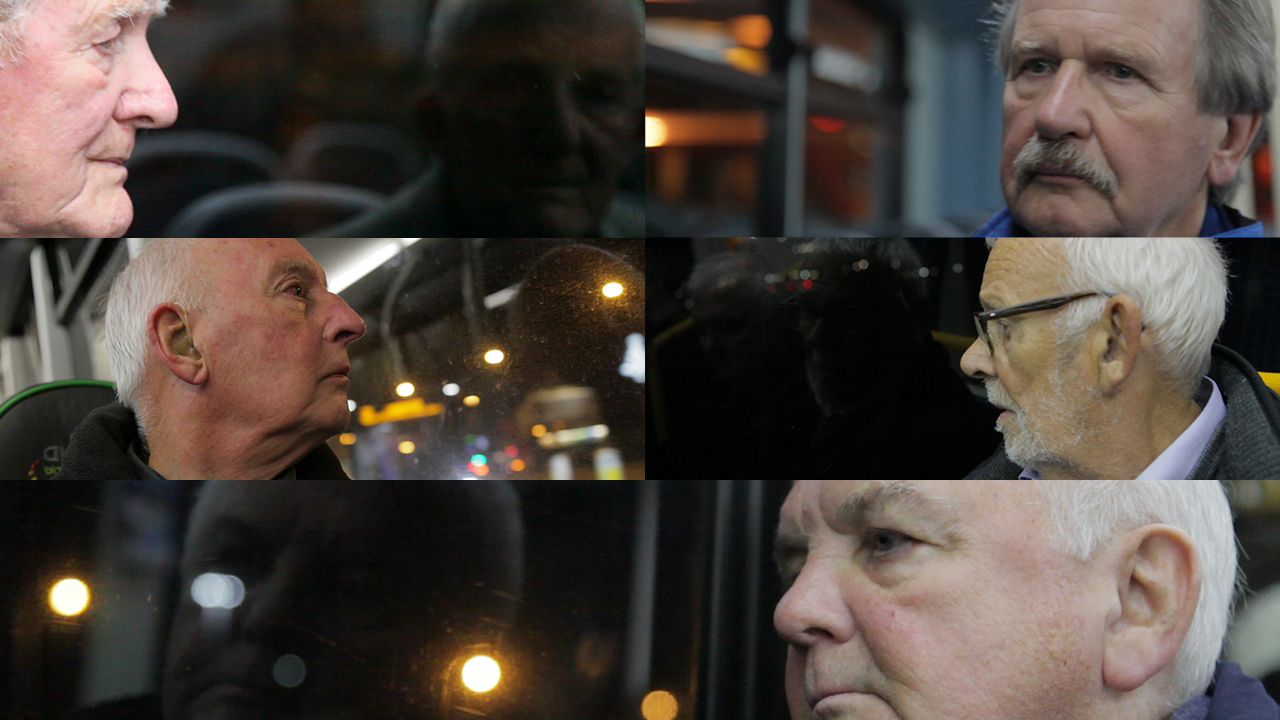
Dir.: Steve Sprung; Documentary with shop stewards of Lucas Aerospace; Portugal/UK 2018, 212 min.
This film essay, the feature documentary debut of director/writer Steve Sprung, is a British history lesson about about politics, the working class and ecology. Five shop stewards of Lucas Aerospace, who helped to draw up the Lucas Aerospace (L.A.) Shop Steward Committee’s Alternative Corporate Plan in 1976, discuss their motivation, struggle and eventual defeat. The Alternative Corporate Plan was written up after a meeting of 34 Shop Stewards with the then Industry Minister Tony Benn in November 1974, and was called by the Financial Times “the most radical alternative plans ever been drawn up by workers for their company” and nominated for the 1979 Nobel Peace Price.
Lucas Aerospace was a company relaying very much on their armament production, even though it accounted only for just over 50% of the general turnover. In 1974 the company decided to make redundancies, “due to increased international competition”. The Alternative Corporate Plan was an answer, “because it irked the workers that while they could produce Concorde, they were unable to build affordable paraffin heaters for many suffering from the cold in winter”. Staff and manual workers came up with a list of our 150 products, which could replace the military hardware – over 180 organisations had put their proposals forward to the Combine. The argument was that the production of socially more useful goods would also mean that the state would not to have to pay unemployment benefit. The L.A. management rejected the proposals immediately, even though they had admitted that the market for armament products was shrinking. The list of alternative goods was long: it included medical equipment, transport vehicles, improved braking systems, energy conservation, oceanic equipment, and telechiric machines. A cry specific proposal included an expansion of 40% in the production of kidney dialysis machines, which were being manufactured on one of the L.A. sites. The Combine was successful in attracting funding from charitable bodies, which enabled them to set up the Centre for Alternative Industrial Systems (CAITS) at North East London Polytechnic and the Unit for the Development of Alternative Products (UDAP) at Coventry Polytechnic. But after Prime Minister Wilson replaced Benn, and took charge himself of the industry portfolio, he sided with the management of of L.A., and the Combine plan was not even discussed.
Newsreels and documentaries play a big part in recreating the 1970s in the UK which seems a very long time ago. But A Plan is visually dominated by the repeated documentation of the bloody wars L.A. products played such a major part in. The ethical dilemma is so clear that one wonders how successive governments tolerated and even supported a company like L.A.: Between 1971 and 1976, L.A. made a profit of 25 Million £, at the same time, it received grants from Labour/Tory governments worth 10.6. Million £, effectively paying real tax of 470 000 £. But then, today the government supports fossil fuels four times as much as sustainable energy.
The Plan is a reminder that although the black-and-white images seem outdated to us now, the underlying moral bankruptcy of successive government decisions has not changed. Lucas Aerospace doesn’t exist any more, parts of the company were sold off, others went bankrupt. AS
SCREENING DURING LONDON FILM FESTIVAL 2018 | 10-21 OCTOBER 2018